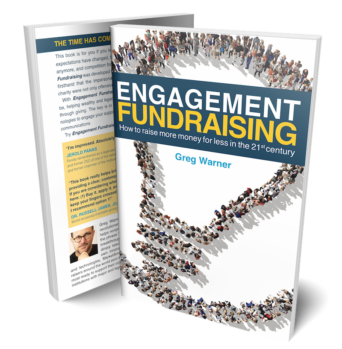We use cookies to ensure that we give you the best experience on our website. By continuing to use this site, you agree to our use of cookies in accordance with our Privacy Policy.
 Login
Login
Your Role
Challenges You Face
results
Learn
Resources
Company
Top 10 Reasons Why Major Gifts Fundraisers Fire Their Employers


As a Major Gifts Fundraiser don’t you want to fire your employer at times? Here are my top 10 reasons why many do just that.
-
- They are told to sit in too many useless meetings
- They are commanded to help arrange events
- They feel overworked, under-appreciated, and undervalued especially because too many in the organization don’t understand the relational (not transactional) nature of what they do
- They get more prospects tossed on their caseload (or portfolio) than they can possibly reach out to in a timely manner
- They get prospects tossed on their caseload who are not truly qualified (no deep life story intersection with your cause, no true capacity, and the timing is not right)
- They get prospects who are not truly ‘warm’ leads… so, the outreach essentially becomes a cold call and usually the donors either don’t respond at all or their lack of readiness results in rather meaningless, time-wasting meetings with unqualified donors
- They keep getting sent on wild-goose chases thanks to false positives (pursuing apathetic prospects who aren’t truly qualified even though their wealth screening results say they are)
- They keep getting pressed to solicit gifts from supporters who aren’t ready because they haven’t been cultivated properly (and there’s no time for cultivation because they are too busy sitting in useless meetings or arranging events)
- They are pressed to report metrics that don’t matter such as ‘activities’ or metrics that only apply for the raising of small, transactional gifts not realizing that the organizations that hold the greatest demands for useless metrics are always the poorest performers (according to Dr. Russell James)
- They are sick and tired of having unrealistic expectations placed upon them
BONUS: Here are some of MarketSmart’s recommended metrics we encourage you to use since they support the relational (not transactional) major gift fundraising process:
- Where does each donor reside in the consideration continuum?
- How does each donor rank the organization compared to others they support?
- How committed are they to the organization’s mission for the benefit of future generations?
- To what degree does the organization entwine with their life story?
- How much did an important figure in their life inspire them to care about the cause?
- How engaged or involved are they?
- How much value is your team delivering to your wealthiest and most passionate (‘potential outlier’) major donors?
- Also, how much value do your wealthiest and most passionate outlier major donor prospects feel they are getting from their relationship with your organization and its staff?
- How likely are they to make meaningful major gifts of assets (according to them)?
- Do you have plans developed to solicit the ones who said they are likely to make major gifts of assets?
Notice how money raised is not included? That’s because managing these metrics always results in exponentially more dollars raised because the focus is on the relationships with the donors, not on their money.
Let me know your thoughts – can you add to this list?
Related Posts:
- The top 10 signs that it’s time to fire your employer
- Can your nonprofit organization afford to invest in marketing automation?
LIKE THIS BLOG POST? LEAVE YOUR COMMENTS BELOW AND/OR SHARE IT WITH YOUR PEERS!
Get smarter with the SmartIdeas blog
Subscribe to our blog today and get actionable fundraising ideas delivered straight to your inbox!

Hi Greg, this is really good!
I agree with and appreciate the comments on metrics, as I have always been more focused on activity than outcomes. (…if you take care of the proper activities, the outcomes look after themselves) With that said, I feel that fundraisers should have some accountability when it comes to ‘the numbers.’ Which numbers do you recommend we track for ourselves and others we manage then? (…I’m having a hard time wrapping my head around tracking donor commitment, engagement, value, etc., qualitatively vs. appointments booked, proposals submitted, dollars raised, etc.)
Also, I bought your book over the holidays, and it’s sitting on my desk right now…it’s next on my list! Please excuse me if the answer to this question is in there somewhere.
Ron.
Ron, I’m honored to hear you bought my book. I hope you gain a lot of value from it.
I’ll email you shortly regarding major gift officer metrics. However, for now, for lead outreach associates who are charged with ‘warming-up’ supporters for a major gift officer, I recommend these metrics:
https://imarketsmart.com/engagement-calling-metrics-for-lead-outreach-associates-tasked-with-arranging-meetings-with-major-donor-legacy-donor-prospects/
Ever since metrics became the “new normal standard” in advancement and fundraising – somewhere in the mid-2000s, if memory serves – I have been a skeptic precisely because most of the metrics systems used by non-profit organizations are bean-counting approaches that encourage development officers to exaggerate (or outright lie) about their efforts and/or waste a lot of their time making cold calls and meeting with “prospects” who have not been commitment-qualified. It is great to see discussion of a different approach that relies much less on wealth screening and more on relationship-building and discerning a prospective donor’s interest in the organization and willingness to support it.
My pleasure Susan! 🙂